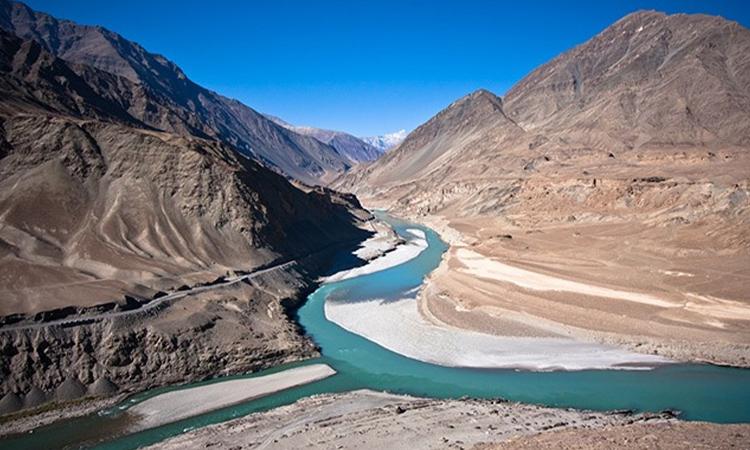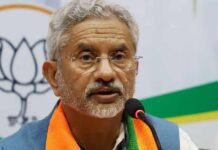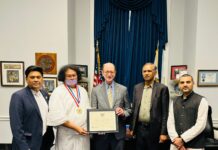NEW DELHI: Two days after former Pakistan High Commissioner to India Abdul Basit admitted that Pakistan has been wasting water that it received under the Indus Water Treaty (IWT), and on a day when India raised a stern objection to mention of Jammu & Kashmir and Ladakh in the China-Pakistan Economic Corridor joint statement, experts from India have welcomed the statement even as officials said it is Pakistan’s internal matter.
This was especially a welcome comment given the fact that relationship between arch-rival neighbours, Pakistan and India, have gone from bad to worse in the past with both sides accusing each other of not creating the environment for talks.
“Our water is wasted, we cannot say that India has stopped providing water to Pakistan. Under the 1960 Indus Waters Treaty, India has been providing 133 million acre feet (MAF) of water to us, but we waste much of it because we did not build dams and reservoirs,” Basit was quoted as saying.
His comments come against the backdrop that Pakistan has often always officially blamed India and accused it of making the IWT dysfunctional.
Under the 1960 vintage IWT, India and Pakistan share the waters of six rivers that flow through India towards Pakistan. Of these, India has complete rights over three eastern rivers – Sutlej, Beas and Ravi, while Pakistan has right over the western rivers Chenab, Jhelum and Indus. India can, however, build run-of-the-river projects on the western rivers. Pakistan gets almost 80 per cent share of the Indus basin waters (approx 135 MAF) against India’s 33 MAF.
According to a 2017 media report from Pakistan, out of the total average annual available water in Pakistan, the system losses such as evaporation, seepage, conveyance comprise 12 MAF annually and about 31 MAF flows into the sea. Together this is more than India’s share under the Treaty.
MoJS Research Chair, Water Conflicts and Governance at the Centre for Policy Research (CPR), Srinivas Chokkakula, said: “They (Pakistan) keep blaming from the fear of losing the waters that are flowing into Pakistan right now. India too has only recently done fairly well; there are certain interventions that the government has done. It is partly those fears that Indian intervention upstream might lead to some kind of adverse implication on the supply that they are getting right now.”
Otherwise, Pakistan has to put its house in order and there is literature to support it, he said, adding: “Political statements have always been made with political objectives.”
Chokkakula also reminded that Basit, in his new avatar, has also written a book that is highly critical of Pakistan.
Former NHPC Ltd CMD Balraj Joshi, who had represented India at the International Court of Arbitration for the Kishanganga project in the Indus Basin and also participated at a government level meeting on IWT at Washington DC vis-a-vis IWT, said, this is not the first time someone like Basit has said this. “Not just (Abdul) Basit but another person from Pakistan, former Secretary, Defence, Gen Naeem Lodhi too had openly said that Pakistan has not been able to utilise water reaching them, in fact, very recently at the virtual forum of Global Counter Terrorism Council (GCTC),” Joshi said.
Contacted, India’s Indus Commissioner, P.K. Saxena said: “These issues are internal to Pakistan and need no comments. India is only concerned about the narrative in Pakistan falsely blaming us for their water woes and I am happy that a person at his level in Pakistan has also admitted the root cause of it. This is what we have been harping on for years.”
“The fact is that India, as a responsible nation, never hindered water flows to which Pakistan is entitled. However, India is committed to fully utilise her rights given under the Treaty,” he added.
Under the Article VIII (5) of the IWT the Permanent Indus Commissions of both the countries are to meet regularly at least once a year, alternately in India and Pakistan. Last such meeting was held in March 2021 in India and the next is due in Pakistan, which is likely to be held in March.







